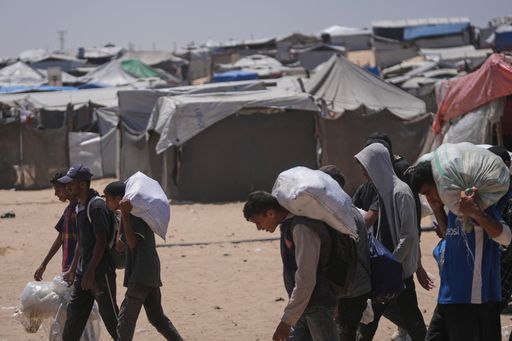East Asian nations have adopted an action plan that expresses their intention to strengthen coordination and promote cooperation in humanitarian aid, recovery and reconstruction assistance for Palestine, said a statement from the Japanese Foreign Ministry.
The Kuala Lumpur action plan was adopted on Friday at the fourth ministerial meeting of the Conference on Cooperation among East Asian Countries for Palestinian Development (CEAPAD) held in the Malaysian capital.
CEAPAD is a regional conference framework launched by Japan in 2013 to support Palestinian state-building efforts by drawing on the resources, knowledge and experiences of economic development of the East Asian countries.
Hosted by Malaysia, the meeting was co-chaired by Japanese Foreign Minister Iwaya Takeshi, his Malaysian counterpart, Utama Haji Mohamad bin Haji Hasan, Minister of Foreign Affairs of Malaysia and Estephan Salameh, Minister of Planning and International Cooperation of Palestine.
Expressing concerns about the deteriorating situation in the occupied West Bank and besieged Gaza, particularly the humanitarian crisis in the blockaded enclave, the meeting called for the "full" resumption of humanitarian aid as well as the independent and impartial operations of the UN and humanitarian agencies.
It also called for an immediate ceasefire in Gaza, reiterating support for a two-state solution to the Palestine issue.

Japan's support for Palestine
Japan's top diplomat emphasised the significance of enhancing collaboration through CEAPAD to expand the assistance base and diversify the assistance means for Palestine, "in light of the unprecedented difficulties Palestinians have been facing, including the situation in Gaza."
He also called for urgent humanitarian needs, as well as enormous early-recovery and reconstruction required in Gaza.
Reiterating Tokyo's support for a two-state solution, Iwaya emphasised Japan's commitment to continue to play an active role in humanitarian aid, early recovery and reconstruction assistance and supporting Palestinian Authority (PA) reforms.
Palestinian Prime Minister Mohammad Mustafa, who participated through a video message, provided an overview of the challenges Palestine is facing in Gaza and the West Bank, emphasising the importance of a two-state solution.
Representatives from 13 countries and regions, and two international organisations, including Japan, Malaysia, Palestine, Brunei, Cambodia, Indonesia, the Republic of Korea, Laos, the Philippines, Singapore, Thailand, Vietnam, Timor-Leste, the UN Relief and Works Agency for Palestine Refugees in the Near East (UNRWA) and the Islamic Development Bank (IDB) attended the meeting.

Israeli carnage
Israel has reduced most of Gaza to ruins and practically displaced all of its population.
It has also blocked the entry of desperately needed humanitarian aid, and only allowed the entry of the controversial US-backed aid group that was established to bypass the UN aid work and was condemned for being a "death trap."
Tel Aviv killed over 57,800 Palestinians, mostly women and children, over the course of its genocide in the blockaded enclave.
Some 11,000 Palestinians are feared buried under rubble of annihilated homes, according to Palestine's official WAFA news agency.
Experts, however, contend that the actual death toll significantly exceeds what the Gaza authorities have reported, estimating it could be around 200,000.



















